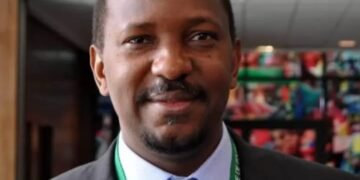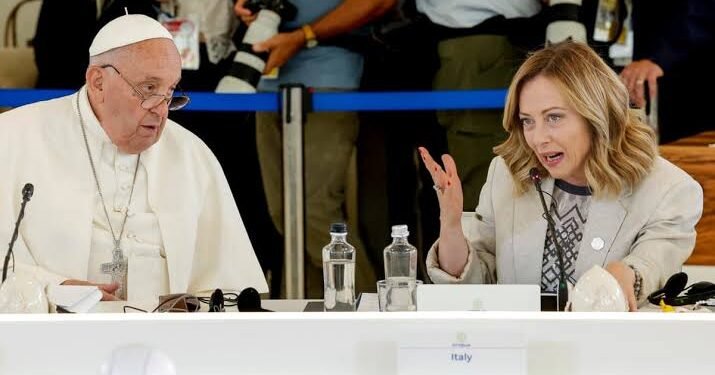What happens when machines are given the power to make life-and-death decisions? How do we ensure that the rapid advancements in AI technology do not erode our fundamental human rights and dignity? Can we strike a balance between innovation and ethics in the deployment of AI?
Pope Francis’ unprecedented address at the G7 Summit in southern Italy has brought a critical ethical perspective to the forefront of discussions on artificial intelligence (AI). As the first pontiff to engage directly with world leaders on this issue, his emphasis was clearly on human-oriented AI development and governance – urging the global body not to relinquish too much power to machines as such an error would come with profound risks.
The Pope’s exhortation to respect human dignity in an age of AI carries profound resonance as technology advances exponentially. Providing that decision-making, he argued, should always remain the singular purview of people, particularly in high-stakes / life and death contexts. He reminds us that even the most complex of AI systems will never possess what it truly means to be human — the power of choice, empathy, and responsibility. One of the most compelling aspects of Pope Francis’ speech was his firm stance against the use of lethal autonomous weapons. He argued convincingly that delegating life-and-death decisions to machines is a grave moral misstep. This perspective is particularly relevant as nations increasingly explore AI’s military applications. Hence, the Pope’s call to ban autonomous weapons and ensure strict human oversight in military technology reflects a broader ethical consensus that prioritizes human life and dignity over technological expedience.
Fortunately, the G7 leaders’ final statement, which echoed many of the Pope’s concerns, marks a significant step towards more responsible AI governance. Their commitment to a “human-centred” digital transformation acknowledges the necessity of balancing technological innovation with the preservation of human rights and democratic values. This approach is essential not only for ethical reasons but also for maintaining the trust of the public in AI systems.
Nevertheless, caution is imperative to understand that the challenges outlined by Pope Francis extend beyond the scope of military AI. The potential displacement of workers due to automation and the ethical dilemmas posed by predictive algorithms in the justice system are pressing issues that demand comprehensive policy responses. As AI continues to permeate various sectors, the risk of exacerbating social inequalities and infringing on individual rights becomes more pronounced. Policymakers must ensure that AI-driven solutions are inclusive, transparent, and subject to rigorous ethical scrutiny. In this context, the role of political leaders becomes paramount. They must lead by example, implementing regulatory frameworks that safeguard human interests and prevent the misuse of AI. This includes setting international standards for AI development, fostering collaboration between countries, and ensuring that AI applications align with humanitarian principles.
The G7 Summit’s acknowledgment of these issues is a promising start, but it must translate into concrete actions. The moral authority of leaders like Pope Francis can galvanize international efforts to establish a robust ethical framework for AI. In doing so, we can harness the benefits of AI while mitigating its risks, ensuring that technology serves humanity rather than diminishing it.













































